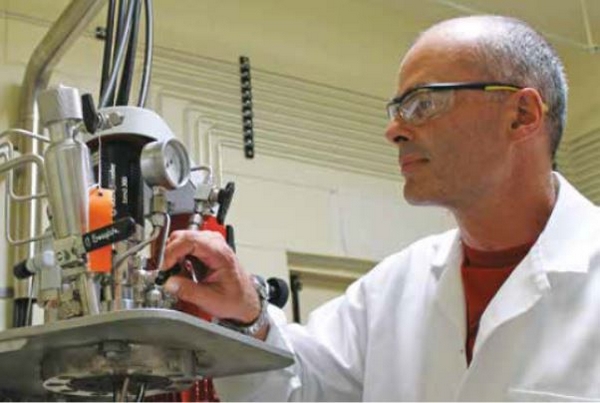Reinventing the water closet
Scion is using waste water treatment science from the pulp and paper industry in an aid assistance project to help solve the world’s sanitation problems by reinventing the toilet.
There are 2.5 billion people worldwide1 living without adequate access to safe and affordable sanitation. While the implications on human and environmental health are enormous, the toilet as we know it is not an option for many of the regions that need sanitation the most. A new solution to treat human waste is needed, and the Bill and Melinda Gates Foundation is working with scientists from Scion, and all over the world, to make it happen.
The challenge to reinvent the toilet was started by the foundation in 2011. The foundation’s aim is to remove the barriers to safe sanitation by funding work to create a toilet that is safe for humans and the environment, is sustainable, cheap to use (less than US$0.05 per user per day) and works ‘off the grid’.
Scion came to the project in 2015, when the foundation awarded our research team a grant to create a proof of concept – showing that our wet oxidation technology could be an effective way to treat human waste. In 2016, the initial results prompted the foundation to award our team a further grant to create a full-scale working prototype in the next two years. Scion has also been given funding to work to apply extrusion technology to the dewatering of pit latrines and has delivered a highly successful proof of concept.
Research Leader Dr Daniel Gapes says the real winners of this challenge will be the 2.5 billion people who will benefit from the technology. “That number keeps us motivated, it’s been key to our success. We’re just one of many teams around the world working on a solution to this problem, but we’re all sharing information and working together.”
To help reduce the organic load of the effluent coming from the wet oxidation process, the Scion team has begun a collaboration with the University of West England (UWE). Ioannis Ieropoulos, Professor of Bioenergy and Self-Sustainable Systems, from UWE says, “This is a wonderful opportunity to bring together multiple technologies (Scion, Swansea and UWE) and collectively try to solve some of the world’s sanitation problems. The collaboration with Scion allows us, for the first time, to trial our Microbial Fuel Cells in line with the wet oxidation process; this is novel in its own right and together may give us an outcome, which is more than the sum of the different components coming together.”
Scion has a lot of experience in waste treatment, arising from a long-term focus on the pulp and paper industry and over a decade developing the TERAX® technology. Daniel says, “This work arose from our forestry waste research, and the things we learn from it, such as creating new reactors to process chemicals, are applicable across a variety of fields and places”.
“This is a wonderful opportunity to bring together multiple technologies (Scion, Swansea and UWE) and collectively try to solve some of the world’s sanitation problems.” - Ioannis Ieropoulos, Professor of Bioenergy and Self-Sustainable Systems, University of West England
Collaborators: Swansea University (Wales), University of West England
Investors: The Bill and Melinda Gates Foundation
Publications: http://bit.ly/2tEkAcM
http://bit.ly/2wjeqCD
1 See http://www.gatesfoundation.org/What-We-Do/Global-Development/Reinvent-the-Toilet-Challenge

